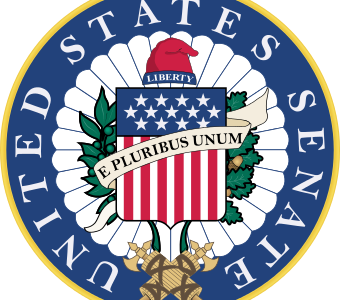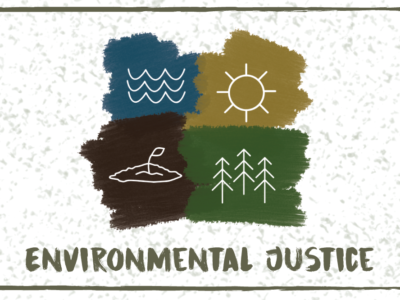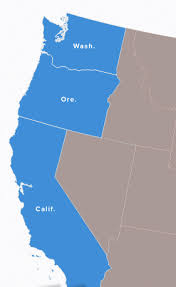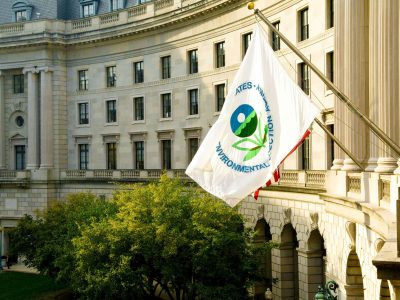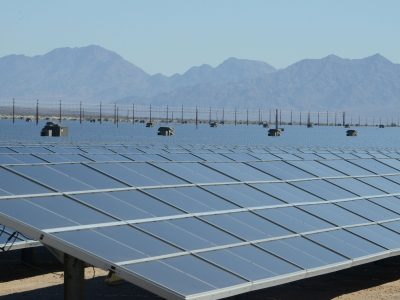Passing Green Laws in a Polarized Senate
New legislation will require threading a needle in the Senate.
How polarized is the Senate? A lot. Consider their voting records: Every Republican except one has an environmental voting score below 25%. Every Democrat but one has a score above 75%. That's a walloping fifty point gap. Given this polarization, getting energy or environmental legislation through Congress will require tremendous finesse. That's without even considering the House, where Nancy Pelosi will have to keep progressives on board for legislation that c...
CONTINUE READINGBiden’s Green Team
Here are the six who will lead the way on environment and energy issues.
Biden’s choices to head particular agencies have trickled out over the past few weeks. It’s only when you put them together that you get a sense of the overall time. It’s a very diverse group, all of whom seem to have strong environmental commitments. Pete Buttigieg, Department of Transportation. Buttigieg is a well-known figure from his run last year for the Democratic nomination. Transportation is a major source of carbon emissions,and Buttigieg will b...
CONTINUE READINGWe Cannot Keep Global Warming within 1.5°C without Geoengineering
A new report from German green left groups heroically try do so, but fail
I emphasize the importance of carbon dioxide removal (CDR) technologies and solar geoengineering research because keeping global warming within the internationally agreed-upon 2°C goal through reducing greenhouse gas emissions alone is extremely difficult, and limiting it to the 1.5°C aspirational target is now essentially impossible. All options to reduce climate change that are consistent with widely held norms should be on the table. Notably, strident opponent...
CONTINUE READINGNew Report: Deploying Engineered Carbon Removal In California
Law & policy options to boost demonstration projects + free webinar on January 27th
Berkeley/UCLA Law report discusses policy solutions to boost engineered carbon removal technologies. Register for a free webinar on Wednesday, January 27th at 10am with an expert panel to hear about the top findings. California has enacted ambitious climate goals, including a statewide carbon neutrality target by 2045. While much of the required greenhouse gas reductions will come from clean technology and emission reduction programs, meeting these targets will ...
CONTINUE READINGEnvironmental Justice and Climate Action
Are the two in conflict? What should we make of the attacks on Mary Nichols?
Mary Nichols, the frontrunner to head EPA, was knocked out of contention earlier this week. She would have been a formidable choice to implement Biden's climate policies. For that reason, it wasn't clear whether she would have the votes to get through the narrowly divided Senate. But she was ultimately taken down by the fierce opposition of progressive environmental justice advocates. According to the NY Times, the primary issue was Nichols's support for Californi...
CONTINUE READINGClimate Action on the West Coast
Three liberal states with very different climate records.
Although California, Oregon, and Washington are often considered liberal bastions, they differ widely in how much they’ve been able to do in climate policy. The scale of their responses has been pretty much proportional to how much of their populations are urban, with conservative rural areas in each state that resist climate action. California. California has long been the national leader in climate action. By 2018, the state’s energy mix was almost 50%...
CONTINUE READINGRestoring Agency Norms
It’s not just the White House. We also have to repair the way agencies operate.
Donald Trump prided himself on his contempt for established norms of presidential action. Whole books have been written about how to restore those norms. Something similar also happened deeper down in the government, out in the agencies like EPA that do the actual work of governance. Trump appointees have corrupted agencies and trashed the norms that support agency integrity. It will take hard work to undo the harm. White House leadership is important, but success wi...
CONTINUE READINGRescinding Federal Environmental Rollbacks
Roadmaps for nearly 200 actions
The Trump Administration has rolled back environmental protection in numerous ways, large and small, across the entire federal government. From power plant mercury emissions to protection for endangered species, from climate change data on government websites to state authority to regulate air pollution, the Administration has undermined the process, structure, and substance of environmental law, regulation, and protection. The incoming Biden Administration can re...
CONTINUE READINGDownstream Emissions
A new court ruling could doom the Trump Administration's ANWR plan.
A Ninth Circuit ruling yesterday overturned approval of offshore drilling in the Arctic. The ruling may directly impact the Trump Administration's plans for oil leasing in the Arctic National Wildlife Refuge (ANWR). By requiring agencies to consider emissions when fossil fuels are ultimately burned, the Court of Appeal's decision may also change the way that agencies consider other fossil fuel projects such as gas pipelines. In Center for Biological Diversity v. Bernh...
CONTINUE READINGRenewable Energy in the Southwest
Despite Trump, the needle has kept moving in the right direction.
The sun is intense in the desert Southwest. During the Trump years, the federal government has hard worked to promote fossil fuels. Trump also has been no friend of renewable energy. This has not stopped progress toward a cleaner energy mix in Arizona, Nevada, New Mexico, and Utah. Arizona Arizona’s current power mix is about a third nuclear, a third coal, a quarter natural gas, and the test renewables. The state government has been in the grip of conservati...
CONTINUE READING



